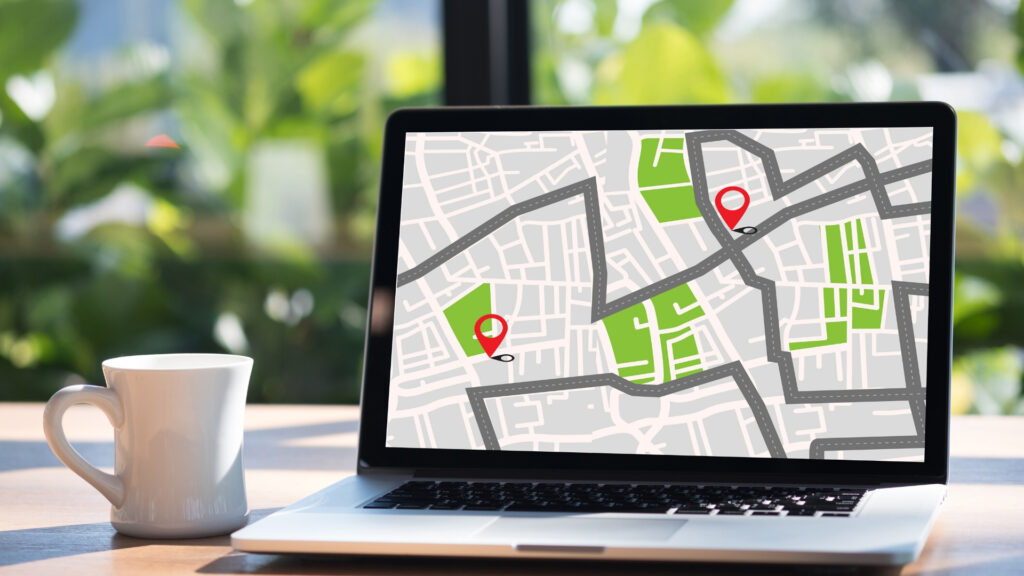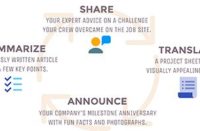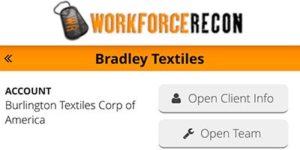
The COVID-19 pandemic has brought much more than illness to our nation. Many changes have happened throughout every state in the U.S. because of the coronavirus. Adapting your business during COVID-19 is as important as ever. Changes and adaptations can include things like masks, social distancing and permanent business closures.
Throughout the pandemic, decorative concrete contractors have found themselves in a quandary. In many states, decorative concrete contractors have been permitted to work as essential businesses for commercial construction and in some cases residential. While in others, they haven’t been able to work at all.
As more and more states are reopening, work is more available, but many of the changes are still intact. For example, face masks are mandated in many venues. Also social distancing continues to be recommended and hand sanitation remains a top priority.
These changes carry over to the small details in how decorative concrete contractors conduct their work. Things like using a pen that isn’t sanitized to sign a contract may cause a prospective client to cringe. As life gets back to a quasi-normal state, there are still things that decorative concrete contractors should adopt to keep their reputation intact while adhering to the recommendations spelled out by health organizations.
One of the ways to safely resume work is to leverage technology to connect with new prospects and win more projects. We need to incorporate digital tools in daily practice. This not only allows us to adhere to safety standards, but also to make it easier to conduct business.
Going paperless
If you’re accustomed to paper contracts, it’s time to embrace digital. Tools such as PandaDoc and DocuSign allow you to get binding e-signatures for your contracts and agreements. These tools allow you to customize fields in a digital contract. This allows for the ability to collect your client’s information and signature much faster than printing and scanning documents. You can also enable payment integrations, so you can receive credit card, debit card and ACH payments online.
Collecting payments online has never been easier. Companies like QuickBooks Online, PayPal and Square allow you to send digital invoicing, as well as send invoices and collect payments. Compare these to determine which service fits best with your current demands.
Offering incentives to boost sales
During the pandemic, consumers and businesses are more money conscious than ever. With travel limitations, homeowners are thinking of using their travel budget for home improvement. Others have taken advantage of working from home to oversee the completion of a coveted project. Businesses are taking advantage of the lack of people in their facilities to refresh their spaces by renovating.

At the same time, homeowners and businesses are thinking of ways to create cash flow. This is the time to consider working with specialized institutions that offer financing services for companies in the construction and home improvement sector. Financial companies, such as Hearth and Acorn Finance, allow you to integrate their application process through a personalized application link on your website.
To encourage prospective clients who have been interested in your services, you can let them know about your financing options once a week through social media and once a month with email blasts.
10-mile radius strategy to land residential projects
If you offer decorative concrete services to residential clients and you want to land more projects this summer, one of the best places to start engaging prospective clients is on Facebook through an ad campaign. With stay-at-home orders, self-quarantine and people just going out less, more individuals are tuning into Facebook as well as Instagram.

A very effective Facebook ad strategy is the 10-mile radius strategy. You pick your best ZIP codes and target cities, and one by one, set up a 10-mile radius ad targeting males and females, ages 25-54, who live in that specific area. Showcase multiple images of work you’ve completed around town. Having pictures of workers following sanitary guidelines is an added bonus.
According to Vox.com, people are paying attention to Facebook and Instagram more than ever. There’s been an increase in social media usage for them, as well as Pinterest and YouTube. A solid Facebook ad campaign is a sure way to get ahead of your competitors.
Embrace virtual meetings and virtual estimates
Nothing beats a face-to-face meeting or a good old-fashioned handshake, but in times like these businesses and potential clients must take necessary precautions to communicate at a distance. Tools such as Zoom, Facebook Messenger, Google Meet and WhatsApp have become great avenues for communication.
The video-conferencing systems that work best for interacting with clients are the ones that have reliable video-processing capabilities for a smooth virtual meeting online and allow you to share your desktop or laptop screen. This ensures you can show your work portfolio and discuss project ideas with your prospect.
For best results, set up your desktop or laptop in a quiet room without excessive noise or background distractions. Make sure your internet connection is reliable and you share your meeting links 10 minutes prior to your call to stay on time and on track.

When starting your virtual meeting, it’s imperative that you, the host, and your prospective client have your cameras turned on. It’s said that 55% of communication is nonverbal, so being in tune with your prospects on video will help you navigate through your sales call with ease. Have all your project pictures posted on your website or on a Google Drive or Dropbox, so you can easily share your work and ideas.
If your work is outdoors, having Google Earth or Google Maps open will enable you to collaborate with your prospect on the outdoors via satellite view, and even take measurements via the distance ruler within Google Earth or Google Maps.
Digital on-boarding, collaboration and communication tools
Concrete contractors such as Mattingly Concrete in Indianapolis and Real Help Decorative Concrete in Buffalo, New York, have embraced digital communication and collaboration tools. These tools such as Slack, Google’s G Suite, Google Drive, Dropbox, Google Forms and web forms help them keep track of projects and get real-time updates on job progress from the crew.

These digital tools allow you to organize clients in their own folders by either client name or work order. The best part about this is that it all lives in the cloud. This means it can be accessed via any mobile, desktop, laptop or tablet connected to the internet.
Make it easy for your team and your clients to work with you. Do this by embracing digital tools and using all the free and low-cost tools available. This will allow you to deliver your projects with confidence while maintaining social distancing.
Embracing these digital tools may seem overwhelming. But as you adapt them into your business, you’ll soon see how much time you’ll save. You can keep all the important information you need at your fingertips. Going digital will keep you much more organized, reduce travel costs and keep efficiency high.
















